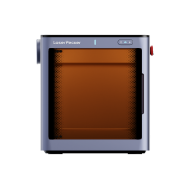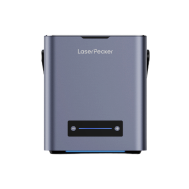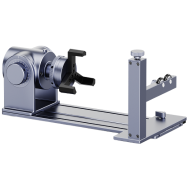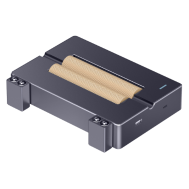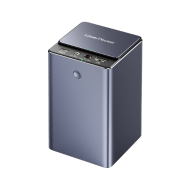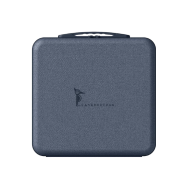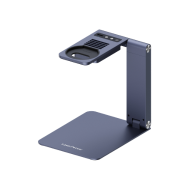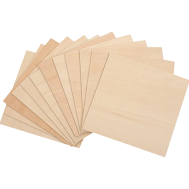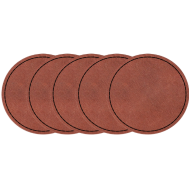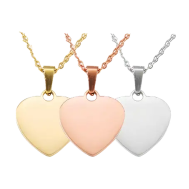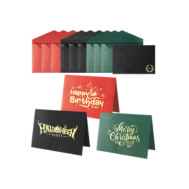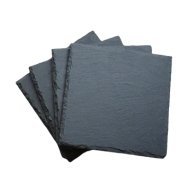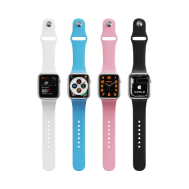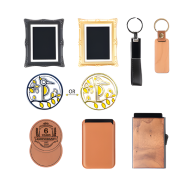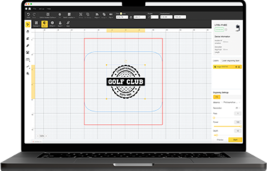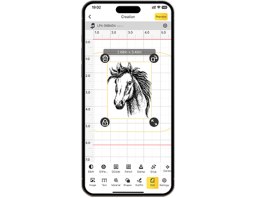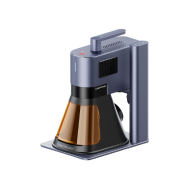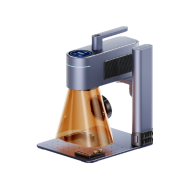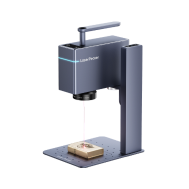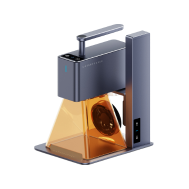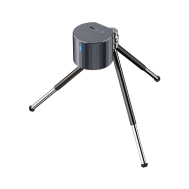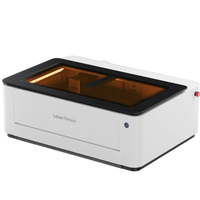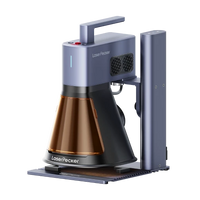If you love crafting, customizing gifts, or running a small creative business, you've probably heard of laser cutters and Cricut machines. Both tools let you bring digital designs to life — cutting, engraving, or shaping materials with impressive precision. But while they may seem similar at first glance, they work in very different ways and are best suited for different kinds of projects.
In this guide, we'll break down how laser cutters and Cricut machines differ in power, materials, speed, and creative flexibility. Whether you just do this as a hobby, own a small business, or do this for a living, knowing what each machine can do will help you decide which one is best for you.

In this article:
Part 1: What is a Cricut Machine?
Cricut machines? They're like the Swiss Army knives for creative folks! Perfect for crafters, hobbyists, or anyone who just loves making stuff. Cricut uses blades to slice through materials, bringing your designs to life. Stickers, cool paper art, vinyl lettering, even fabric patterns...the sky's the limit! And the best part? They're super easy to get hold of, even if you're not exactly a tool whiz.
How Does Cricut Work?
Cricut machines use a blade to cut stuff like paper and vinyl. You just pick a design from their program or upload your own. The machine then cuts it out, and some can even score, write, or add foil! They work great on thinner stuff. Just remember, the better the blade, pressure, and material, the better the cut.

Pros and Cons of the Cricut Machine
Pros:
- It's cheap and great for beginners.
- Small and easy to move around your house.
- It can cut paper, vinyl, fabric, and other thin materials.
- The software is simple to learn and use.
Cons:
- It can't cut thick materials or certain kinds of stuff.
- Don't expect it to engrave metal or make deep cuts.
- Complex designs with many layers might take some time to finish.
- It's not really made for big, industrial projects.
Part 2: What is a Laser Cutter?
Laser cutters s are cool tools that use light to cut or mark materials with really good precision.
They're different from regular cutters since they don't touch what they're working on. This lets you make detailed stuff and clean cuts. You'll find them in factories, sign shops, jewellery making, and even in people's garages for fun projects. So, they're great whether you're a professional or just like to make things yourself.
How Does a Laser Cutter Work?
Laser cutters work by focusing a strong light beam on a material. This beam's energy burns away or melts the material, making a clean cut or engraving. Current laser cutters use computer controls to copy designs from CAD or vector software with precision.
Some advanced, compact, and portable desktop laser cutters are very user-friendly, you can control them easily via a smartphone app. These machines, depending on the laser type-fiber or diode-can work with things like metals, plastics, wood, and leather. You can change the beam's type, power, speed, and focus to get different depths and looks.
Pros and Cons of the Laser Cutter
Pros:
- Super accurate, great for detailed cuts.
- Cuts many things: wood, acrylic, even metal.
- Gives clean, pro-level results.
- Does engraving, embossing, and cutting all in one go.
Cons:
- Costs more than simpler machines like Cricut
- It might take a bit to learn if you're just starting.
Part 3: Laser Cutter vs Cricut: 6 Key Differences Explained
So, you're trying to decide between a laser cutter and a Cricut? Both are cool tools for making stuff, but they do things in pretty different ways. Before you drop some cash, it's worth getting what they're good at.
Let's look at what makes them different - like how precise they are, what stuff they can cut, how tricky the designs can be, how much they cost, and how easy they are to use. This should make picking the right one easier for your projects.
1. Precision and Cutting Ability
Cricut machines are pretty accurate for simple shapes, but they have trouble with small details on tough or thick stuff. If you need really detailed or complicated designs, a laser cutter is the better option.
Laser cutters are great at making very precise cuts, creating detailed designs, clean edges, and deep marks with few mistakes.
2. Materials You Can Cut
Laser cutters work with many materials, like wood, plastic, leather, metals, glass, ceramics—and even vinyl, which is usually Cricut's specialty. Some fancy ones, like fiber lasers, can even slice through thin brass, aluminum, stainless steel, and titanium.
Cricut machines? Not so much. They're meant for paper, cardstock, vinyl, iron-on stuff, and thin leather or balsa wood. You can't cut most metals or thick stuff with them.
3. Design Complexity
Cricuts are better for simpler things - think basic letters, stickers, or easy patterns. Got a project with layers or that pops out in 3D? A Cricut might give you a hard time.
Laser cutters rock for super detailed stuff like logos and cool shapes because they're run by software.
4. Cutting and Engraving Speed
Laser cutters are faster for engraving and cutting thin materials.
CNC cutters move more slowly since they physically remove material, but they're excellent for carving 3D shapes and thick materials.
5. Cost Comparison
Laser cutters usually cost more at the start. Cricuts are cheaper and easier for hobbyists to get, great for small or rare projects. If you plan to use it often or for business, a laser cutter's flexibility and speed might make it a worthwhile investment in the long run.
6. Ease of Use
Cricut machines are simpler to use for those just starting out because the software is easy and the setup is quick.
Laser cutters require more background knowledge about design programs, materials, and safety. But machines like the LP5 have software that's easier to understand, which means they are becoming more user-friendly for beginners, too.
7. Application and Use Cases
Laser cutters? Great for the pros or when you're cranking out a ton of stuff. Think signs, bling, prototypes for factories, or gifts with a personal touch. Now, Cricut machines are more the homebody type – perfect for crafts, school stuff, little custom jobs, and sprucing up your space. Pick the tool that fits what you're doing. It really boils down to how big your project is and what stuff you're working with.
Plus, a cutter also works as a laser engraver, letting you add intricate designs or personalized details to your projects, making it even more versatile.
Part 4: Cricut vs Laser Cutter: Which One Should You Choose?
For simple projects like paper crafts or vinyl stickers, a Cricut machine is a great choice. They're user-friendly, budget-friendly, and just right for hobbies or small projects at home.
When to Choose a CNC Cutter
- Choose this if you often work with strong stuff like thick wood, hard plastics, or metals.
- Go with this type if you need to carve, mill, or shape things in 3D.
- Good for tough manufacturing jobs where lasting power is more important than small details.
- Pick this when you have a tight budget and don't need crazy fast engraving.
However, if you need to cut tougher stuff like wood, metals, or leather with better accuracy, a laser cutter is the better option. We suggest the LP5 – The Powerful 20W Fiber + 20W Diode Laser. It has two lasers: a 20W fiber laser (1064nm) and a 20W diode laser (450nm), This gives you a lot of flexibility. The diode laser works on things like metal, aluminum, steel, wood, leather, plastic, glass, vinyl, and food. The fiber laser is great for metals, plastics, leather, and painted surfaces, which makes it perfect for really detailed jobs.

The LP5 can cut up to 15mm dark acrylic and 20mm basswood with the diode laser. With the fiber laser, it handles 1mm sheets of brass, steel, aluminum, and titanium. It's also a fast engraver, reaching speeds of up to 10,000mm/s, so you can make detailed designs or personalized items quickly. It has accessories like a slide for larger projects (160 × 300mm) and a rotary tool for customizing mugs and bracelets, making it even more useful.
The LP5 works with LightBurn and LaserPecker Design Space software, and you can use it on computers and phones. With its small size, and pro-level performance, the LP5 is great for hobbyists and small businesses wanting top-notch work.
Part 5: FAQ for Cricut vs Laser Cutter
1. Can Cricut Cut Wood or Metal?
Cricut machines work great with stuff like balsa wood, cardboard, thin fake leather, or those super-thin wood sheets. But, they're not made for cutting metal or really thick, hard wood. If you try to cut those, you could mess up the blade, and the machine might not cut as accurately. Plus, it could make your Cricut not last as long. If you want to cut metal or thick wood, you're better off using a laser cutter.
2. Which One is Better for Beginners: Laser Cutter or Cricut?
Cricut machines? Super easy to pick up, especially if you're just starting. The setup's a breeze, the software makes sense, and you probably won't mess things up too badly. They're great for paper, vinyl, fabric – that kind of stuff.
Laser cutters can be trickier, but they give you really precise, pro-level results. Some, like the LP5, try to keep things simple with material settings that are already set, quick engraving, and safety stuff. So, even if you're totally new to it, you can still get pretty awesome results without needing a ton of experience.
3. How Long Does a Laser Cutter Last?
Laser cutters that are well cared for can really last a good while, even if you use them all the time. Fiber lasers such as the LP5 are super tough. They're made to do engraving and cutting fast and repeatedly, and they don't wear out too much. To make sure they last, you need to clean the lenses, check that everything is lined up right, and use them the right way. If you take care of your LP5, it can work well for hobbyists and small shops for a long time. It'll keep cutting accurately and dependably on a bunch of different stuff.
Conclusion
Laser cutters and Cricuts both rock for making stuff, but they're good at different things. Cricuts are cheap, easy to learn, and great for simple stuff like paper crafts or vinyl stickers. Laser cutters? These are the pros.
If you're serious about DIY or run a small biz and need to make super accurate, tough items, then a laser cutter, like the LP5, is the way to go. It lets you do almost anything. Know what each machine does well, and then pick the one that fits what you want to make, how much you wanna spend, and what you plan to do in the future.























